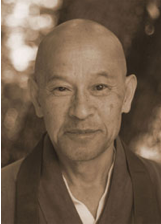11 things to let go of in 2011

I heard a great idea today: for the new year, what are 11 things you can let go of? How many of us stop to think about how our desires (or...shall we call them...cravings) limit us? I am sure I'd have saved enough to retire ten years early, if it weren't for the many needless items I have bought over the course of time. The problem is, everything we buy needs to be cared for in some way: kept clean; repaired; batteries charged; tuned, played, or practiced upon (in the case of my many musical instruments); read (books); understood (computers, software, smartphones!). Even throwing things away becomes problematic: I try not to throw things in the trash unless they can't be recycled, sold, or freecycled . What freedom we would have, if we could let go of the desire for all this stuff! What other stuff can I let go of? The need to "be good" at stuff? Judging others? Judging myself? The need to be at the center of my personal cosmology? It won't take me lon...







